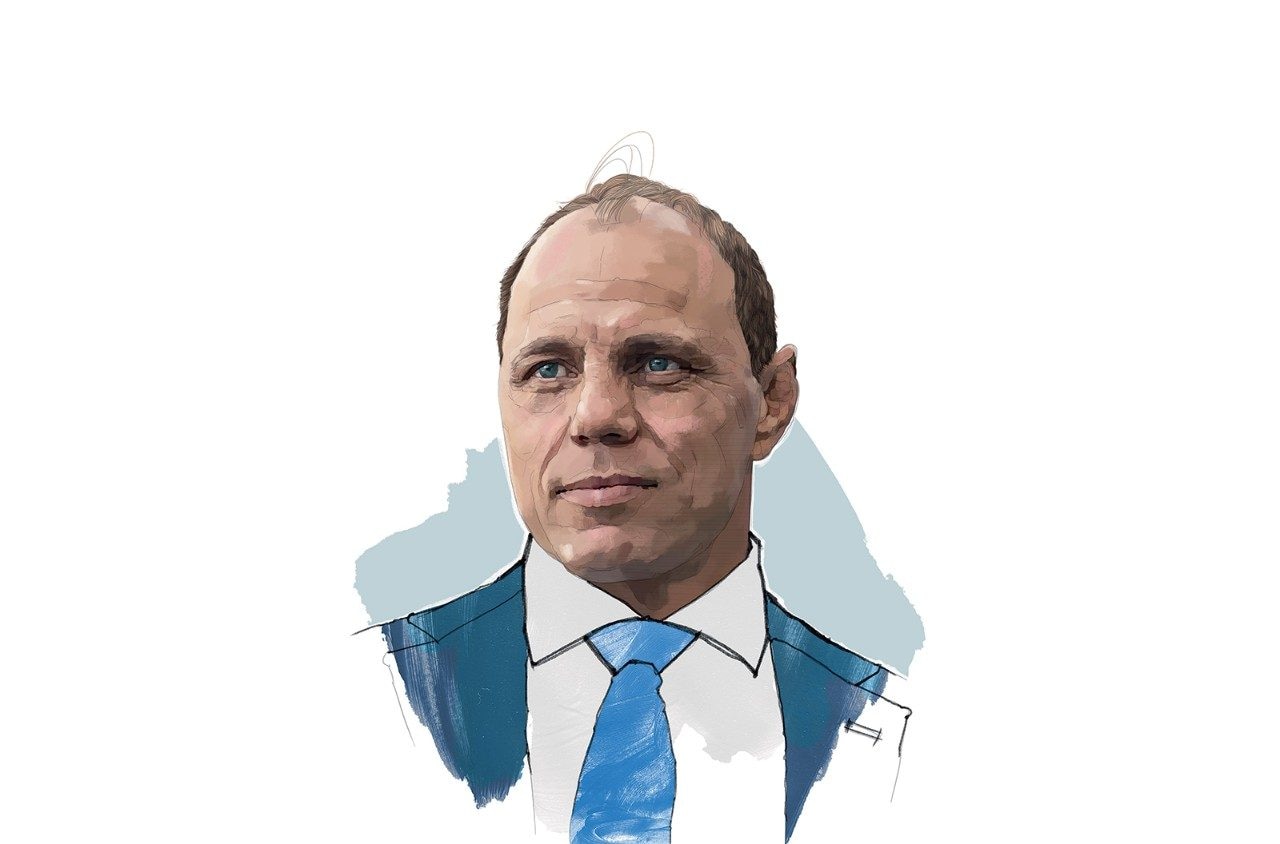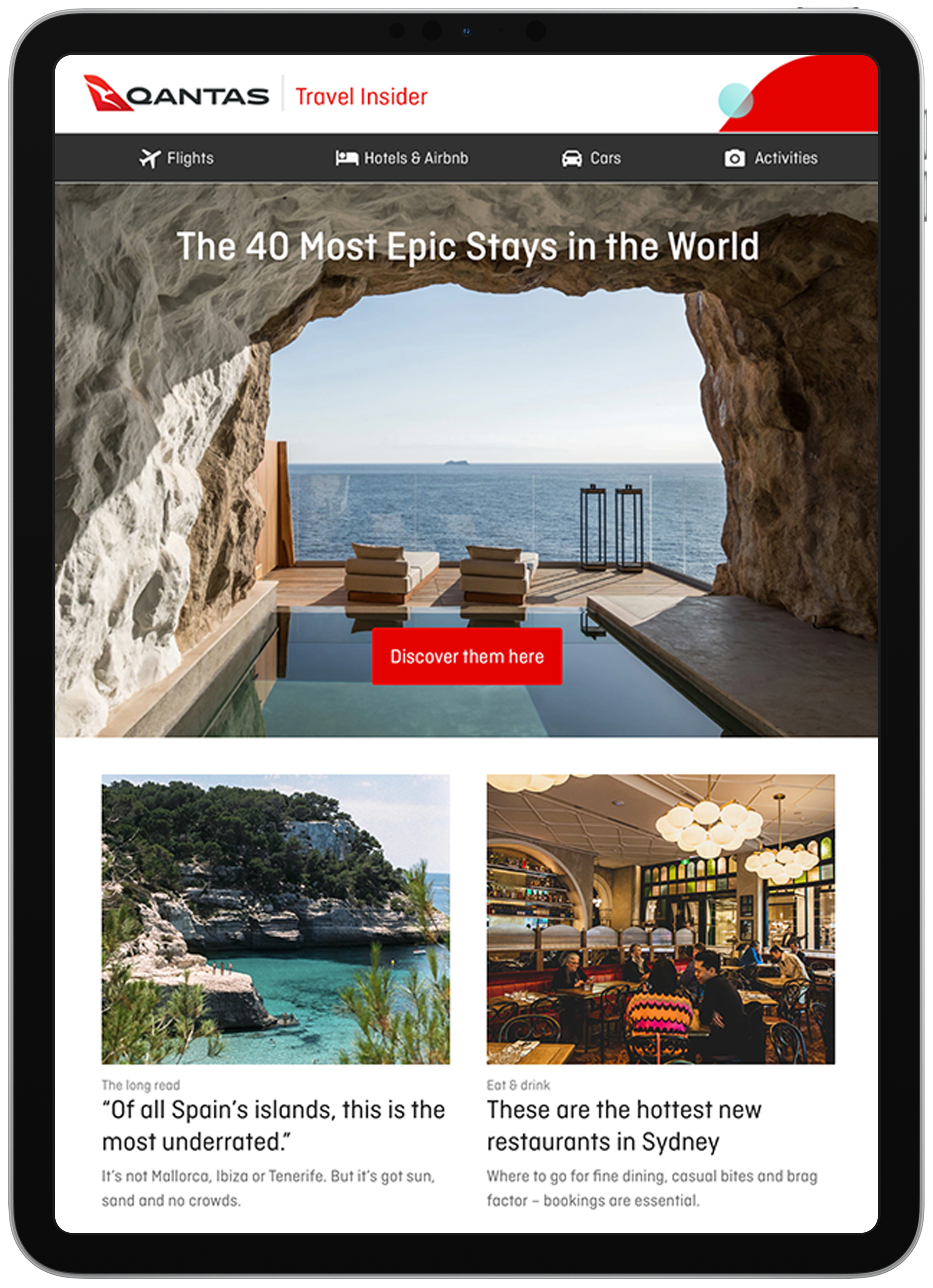CEO Phil Waugh on the Future of Rugby Australia

The former Wallaby is playing the toughest game of his career but is determined to make rugby union great again.
Current role: CEO, Rugby Australia
Tenure: One year, eight months
Previous roles: Executive, broker distribution, National Australia Bank; head of Private Wealth, north, Westpac and St.George Bank; head of COVID-19 response, business, Westpac; national manager, auto finance, St.George Bank
How do you define good leadership?
Good leadership provides clarity and inspiration to those you’re leading. You certainly want to be very clear about direction and to provide confidence to those around you. Under good leadership, everyone maximises their individual performance and contributes to the team.
Being part of a strong team is something you’d understand better than most...
Everything is about putting the team first – that’s your number-one priority to maximise performance. In rugby, if everyone’s playing at their absolute peak, you get the ultimate team result. There are parallels between sport and business when it comes to results – being team-first is very closely linked to performance.
Your first year as CEO of Rugby Australia was challenging, with a disappointing World Cup, the defection of coach Eddie Jones and a change in chair. What did you learn about yourself?
I ran the COVID-19 response for Westpac’s business division and that was equally difficult, given the uncertainty. What we’ve been through here was very much crisis management as well. For me, it was around taking the appropriate amount of time to make well-informed and educated decisions rather than responding or reacting instinctively to the media or internal stakeholder pressure. I’m a big believer in giving things time – time heals injuries and emotions.
Are you good in a crisis?
I think I am; it’s probably one of my strengths. I remove the emotion around decision-making in a crisis and ensure that outcomes are educated and quite transactional. You don’t want to be in a crisis but to come out the other side with a solid team and a strong culture is incredibly rewarding. We’re starting to feel some of those green shoots coming through now at Rugby Australia.
When you were appointed CEO in 2023, your then chair, Hamish McLennan, said, “There’s absolutely no learning curve for Waughie whatsoever; he’ll slip into the role.” Was that an accurate statement?
I have a very good understanding of the game and the stakeholders around the game. But in banking, you’ve got [a lot of] highly capable resources supporting each different line of the business. One element I don’t think people appreciate is the complexity of a sporting organisation such as Rugby Australia and the many different stakeholders on very lean resourcing. There are so many things to do and so many priorities – you need to be really disciplined about what’s going to matter now. That’s been a good challenge to take on.
Rugby union was flying so high at the turn of the century – and you’d know because you were playing through that period. What happened? Why has it lost its lustre?
Hopefully we’re bringing it back. When rugby was at its peak, the connection from junior club to senior club, to state, to the national team, was clear. There was a very clear pathway. Over time, we’ve added teams to Super Rugby; we’ve expanded at a rate that the game wasn’t quite ready for. In doing that, you dilute talent – rather than focusing on quality, you’re focusing on quantity of games. The game and the world have become a lot more complex and clearly we haven’t been the winner in that space. I don’t want to say we’re going back to the future but we’re focusing on providing absolute clarity around the pathways. And it’s very much about connection. People have lost touch with the professional game because the connection is not there like it used to be.
There must be so much riding on the Lions tour in late June…
The beautiful thing about the Lions tour is that it brings alive rugby supporters and all sporting supporters. We’ll have about 40,000 people on Australian shores wearing red jerseys. It’s a unique culture in that it’s fiercely competitive on the field but off the field, there’s a camaraderie. We want to engage all Australians, not just rugby supporters.
I know AFL and rugby league have traditionally been your competition but you must be looking at Football Australia with much envy after what they’ve managed to do.
My view is that we need to coexist with other sports. I genuinely believe the culture of rugby and its values will ensure that we’re a net beneficiary of as many kids as possible playing as many sports as possible. So while there is this rivalry – across participation, scheduling, broadcast, commercial – how do we ensure that as many people as possible are experiencing the game and the culture of rugby?
A key part of Football Australia’s success has been the participation of women and girls. That has to be a huge opportunity for rugby, too.
It’s our fastest-growing segment. The fortunate position we’re in is that we’re an Olympic sport as well, with the Sevens format. Other codes don’t have the same opportunity internationally and within the Olympics but there’s a real opportunity for young girls to become Olympians through rugby. Rugby is also a game for all shapes and sizes, and the diversity of our athletes within the women’s game is really appealing.
In your five-year strategy, you detail your ambitions for the game, which include making Australia the world’s number-one rugby-playing nation. How will you achieve that?
Strategy documents are always very polarising. If you set a stake in the ground, what does it mean if you don’t achieve it? We’ve been fairly ambitious in some of the goals and measures that were put in the strategy document. That being said, there’s a lot of benchmarking across other teams that have had a similar vision. New Zealand beat South Africa 57 to nil in 2017 and then two years later South Africa won the World Cup in 2019 and again in 2023. Ireland got beaten by 60 points by New Zealand before they set a strategy and executed it. So the substance is in the execution rather than the goals. We have the structure and the people to give ourselves every possible chance to achieve the best of our abilities. They’re aspirational goals but we’ve done all the modelling and they are certainly achievable. It’s just a matter of getting the hard work done and ensuring that we execute and deliver rather than over-promising and under-delivering.
Are you an optimistic leader?
Definitely. That being said, I’m realistic and ensure that there’s substance beneath what our teams set out to achieve. I’m a big believer in attitude – it’s really important to bring a level of energy that’s infectious.
One of the things that you conceded in your plan is that RA doesn’t have enough money to make good on it. What will you do about that?
This isn’t an Australian problem in rugby. All national unions are under the same financial pressures. We are seeing player salaries grow at a far faster rate than our revenue lines. A lot of the focus is on broadcast – and broadcast is, without a doubt, our largest single revenue stream – but we also need to diversify our revenue streams. And we have to exhibit the right values for commercial partners to want to partner with us and put their brand next to ours. So a big focus is culture and values.
What’s the secret to being a good negotiator? When you’re in those sticky conversations with partners, what helps?
Everyone needs to realise value. If there’s one party that’s feeling massively undervalued or they’re not getting the right ROI, that relationship won’t work. It needs to be a partnership and it needs to work for everyone.
When you lead a sporting organisation, you’re fair game for everyone with an opinion. How have you coped with that?
I hope we’ll always get feedback but if you’re going to be effective, you can’t keep everyone happy all the time. Some tough decisions need to be made to drive the game forward. But you have to do what you think is right, be authentic and transparent and ensure you’re surrounding yourself with really capable people.
As a former Wallaby with vast experience in banking, are you in the sweet spot to lead RA?
It was really important for me when I retired to go outside of rugby and succeed away from the game. When I think about the journey I went on through the finance industry to where I am today, I do feel like I have a good balance of knowing the game intimately as well as understanding what it takes to succeed outside of sport.
You’ve got a newish chair in Daniel Herbert. What does an ideal relationship between the CEO and the chair look like?
It needs to be transparent and it needs to be vulnerable. There should never be any surprises – that’s important, particularly when there are so many different opinions and stakeholders to appease within sporting communities. You have to be authentic because as soon as you fake anything, you get found out pretty quickly. How do we actually thrash this out with everything on the table and no secrets?
What’s your biggest gap as a leader?
Patience. We all like to see outcomes and results as quickly as possible. In sport, sometimes all the hard work you’re doing takes longer to translate into on-field performance. So patience is a growth area for me. I also push myself pretty hard from a work ethic perspective. Again, I need to be conscious that not everyone can or wants to run at that same pace. Understanding each individual is really important.
Do you ever get emotional at work?
Yeah, I do. My view is you’ve got to make it personal. It’s more than just the pay and the work hours; there has to be a meaning and substance with each individual. You see players making their debut or coming back from injury. You see people achieve great things in the office when they’re having challenges outside the office. Seeing people do well is very rewarding.
What’s one piece of advice you’d give a brand new CEO?
Getting good mentors and sponsors is really important. You want people who are considered and who will give you very honest feedback. Being the CEO can be a lonely place but you can surround yourself with experienced leaders who have walked in your shoes. Also, be yourself. Everyone else is already taken. You got the role because of what you’ve done, the person you are and the characteristics that you exhibit. Don’t try and emulate someone else. Continue to grow but also continue to be yourself.
On the fly
Personal motto
Have no regrets and lean in.
Email approach
Short, sharp and with absolute clarity. I respond quickly to emails that can easily be answered. Otherwise they go down the bottom of the page and you never get back to them.
Motivation tactic
I consciously focus on energy. If you walk into a room upbeat with your shoulders back, with swagger in your step, that’s infectious. If you walk into a room kicking stones with your shoulders slouched, that is also infectious. So carry the right energy.
Productivity hack
It’s a classic one but you know, win the morning, win the day. I’m up before the sun. If I don’t train in the morning, I’m a far worse person. People say you win the Sydney to Hobart [yacht race] when everyone else is sleeping. So how can you get ahead when everyone else is resting?
Business book or podcast
I’ve been listening to Ed Cowan’s Scaling Up, which interviews successful CEOs and gets quite personal with their journeys.
A rule you don’t break?
It’s easy to respond emotionally or get frustrated but I treat every word I write as discoverable.



